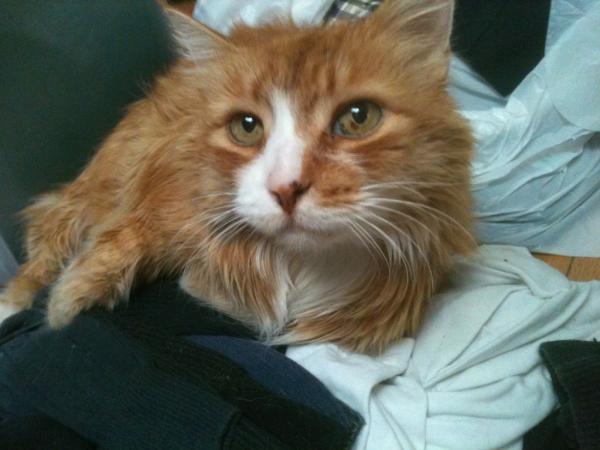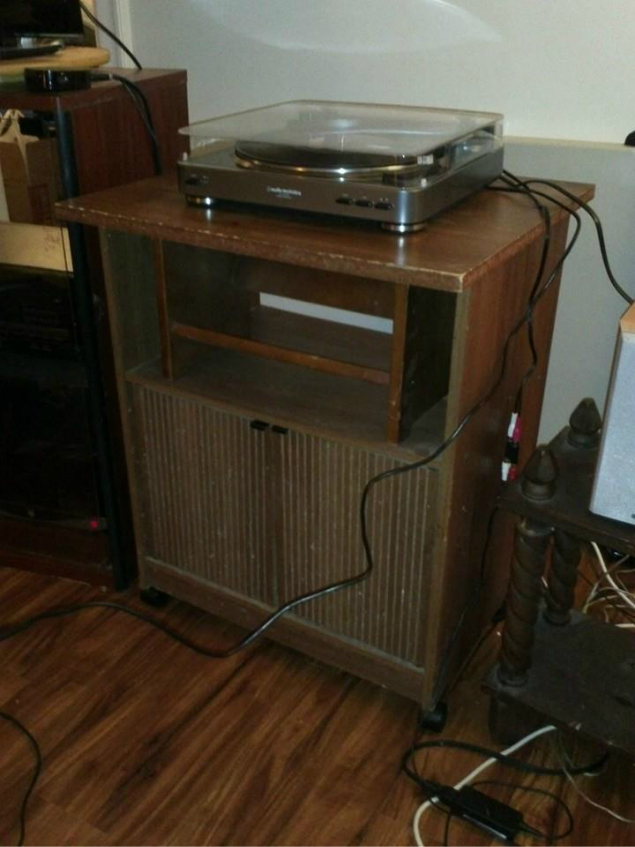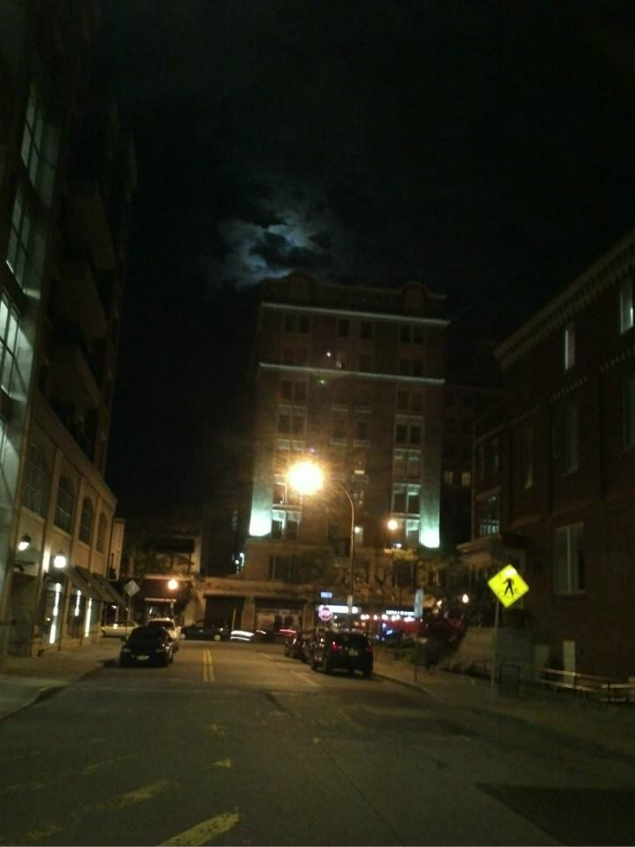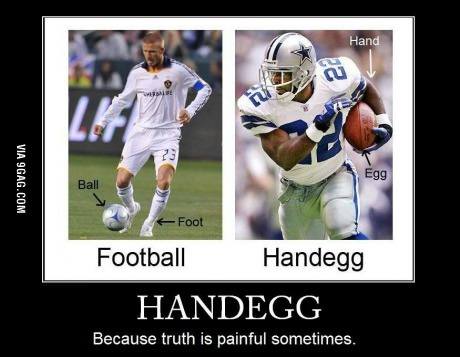To the young mother I saw allowing her young towhead son to drag her around the grocery while he sang a made-up nonsensical song and seemed to be the happiest person on Earth at that moment, to you, for allowing him to pull you and for singing along right with him, I say: You’re doing it right.
Monthly Archives: July 2014
Rewriting History
I have lately been embarking on a new project here at the 8WK.
Doing a bit of editing.
You might think, how can you edit a blog that’s been around since March 2001? It’s ridiculous, you’re being ridiculous, now on your bike, good chap.
Well, I can. It’s a living document, that’s what makes it so vital. I can fix or delete broken links. I can overhaul categories to make things easier to find. I can try to fix or replace pictures. I can edit to enforce a more cohesive editorial style. I can even add entries retroactively.
For instance, I created this nice Thanksgiving entry from 2011 by rummaging through my Twitter archive.
There are some handy add-on tools to help with such a process, including:
- Broken Link Checker
- Jetpack by WordPress.com
- Multi-column Tag Map
- Static Random Posts Widget
- WordPress Editorial Calendar
- WP HTML Sitemap
It just seems like something I’ve put so much into all these years ought to be more complete. And, it gives me a nice organizational construct with which to retrace my steps a little.
Not to mention, I’m finding lots of KITEEH PICTOORS.

- Around the World in 7 Grills (Fix)
Rewriting History
I have lately been embarking on a new project here at the 8WK.
Doing a bit of editing.
You might think, how can you edit a blog that’s been around since March 2001? It’s ridiculous, you’re being ridiculous, now on your bike, good chap.
Well, I can. It’s a living document, that’s what makes it so vital. I can fix or delete broken links. I can overhaul categories to make things easier to find. I can try to fix or replace pictures. I can edit to enforce a more cohesive editorial style. I can even add entries retroactively.
For instance, I created this nice Thanksgiving entry from 2011 by rummaging through my Twitter archive.
There are some handy add-on tools to help with such a process, including:
- Broken Link Checker
- Jetpack by WordPress.com
- Multi-column Tag Map
- Static Random Posts Widget
- WordPress Editorial Calendar
- WP HTML Sitemap
It just seems like something I’ve put so much into all these years ought to be more complete. And, it gives me a nice organizational construct with which to retrace my steps a little.
Not to mention, I’m finding lots of KITEEH PICTOORS.

- Around the World in 7 Grills
(Fix)
Ah! Leah!
I think I was 14 the summer I was Heather’s boyfriend for like a day.
13? I don’t know. It was just at that age at which I was surging with that wicked new chemistry, when nothing occupied my every waking thought, action, statement, or deed except for wanting to be with a person of the opposite sex. I am amazed that any other information of any kind ever made it into my brain at that time. Such miraculous computers we carry around on our shoulders.
Heather had her look together. Her most astonishing feature was her piercing blue eyes, which she had already learned to accentuate nicely. She had kind of a schnoz, but I was into that. Her hair was bleached and blown out, she was tanned, and she wore this fur stole and somehow pulled it off even in a little lake resort town in the middle of summer. She looked like she’d feel soft, and she wore lip gloss really well.
I remember seeing a movie with a group back when the Mall had a theater, and I remember that she had to tell me to put my arm around her.
(To paraphrase, right then and there, I should have known I was through.)
A few days later or at least what seems like it in my memory, she was hanging with another kid, a dude who was taller, cooler, better lookin’ than I. I remember one awkward afternoon hanging out at the picnic tables by the Lake, her friend Leah and I making awkward conversation, and Heather and her new friend canoodling. I was raging.
Leah wasn’t Heather. Her hair was brown and curly and she wore glasses. She dressed in black mostly. She had acne. I knew she liked me. But I wasn’t remotely interested in her, and I was pretty busy being angry and hurt about the situation going on in front of my eyes, too much so to exercise the opportunity to get to know Leah.
But Leah liked Prince.
She was a real fan, too. Like, she was an early adopter. I don’t even know if 1999 was out at the time. Certainly “When Doves Cry” was way in the back of the way way back of The Vault. Leah was talking about what a great album Dirty Mind was, and I had no freakin’ clue what she was talking about.
Now, it’s 30 years since “Purple Rain,” and that post is making the rounds on Facebook. I haven’t thought of Leah in a long time, but today, when I saw the Facebook post about that milestone making the rounds, the synapses just connected. And my brain scolded me fiercely.
You really should have gotten to know Leah, dude.
Heather was such a pill.
While I’m on rememborating things (hey. look at that. I just invented a word.), today is likely the anniversary of the time I got to shake Arlo Guthrie’s hand. And Studs Terkel’s. And Pete Seeger’s. And Josh White Jr.’s. Not much of a story to it, really; Dear Old Dad had me for the summer and we went to a free concert in D.C. to remember the birthday of one Woody Guthrie. At the break I used the fact that I was a kid to sneak back and meet me some celebrities (the backstage was not walled off, exactly).
I asked Arlo to play “City of New Orleans” (my knowledge of him and/or Woody was pretty much relegated to Arlo’s Hobo’s Lullaby album at the time), but he said the show was for his Dad’s music. I did get an autograph from Studs, including the famous “take it easy, but take it.”
I had no idea what that meant.
Anyway. I think Woody Guthrie’s birthday is worth rememborating every year. The man did, after all, write the song that really should be the national anthem, after all.
Kidding.
In Other News
“This is how you play tennis without the net.”
- ‘Weird Al’ Enlists Jack Black, Aisha Tyler for Pharrell Parody ‘Tacky’ (Rolling Stone) It’s no “Dare To Be Stupid,” but it’s nice to see Weird Al still doing his thing.
- William Zabka: The “Karate Kid†cast is like a frat (Salon)
- Pinboard
- Amelia Rose Earhart completes round-the-world flight (SFGate Blog) Does this mean I have to take up boxing?
I don’t know who Greg is. But he has a fan club.

Must have been one of those days. I saw this today, and I saw a man taking a piss on the sidewalk in downtown Rochester in broad daylight. He wasn’t hiding behind a building or anything. Right out in the open on Chestnut Street.
But, mission accomplished. The turntable has a new home.

- Amazing Shots Of Dogs Diving Under Water For Balls
Gotham


In Other News
- ‘Cosmos’ Just Got Nominated for 12 Emmys (Mother Jones)
- Writers need @WorstMuse. (Twitter)
- Carl Sagan denied being an atheist. So what did he believe? (The Washington Post)
What Time Is It?
“I have that shirt,” I said to the liquor store checkout girl. It was the iconic 1977 Led Zeppelin tour shirt with the Icarus figure on the front.
“Everyone should have that shirt,” she said.
Then she said she had to wear the G-rated version to work. I must have looked puzzled because she then explained to me that the original tour shirt included detailed sketching of the Icarus figure’s junk.
“Ah,” said I. “I see.” Because what else does one say to that?
Speaking of which, I got Hawked the other day.
This rarely happens. I mean, usually it’s “Hey, so, uh, are you related to Richard?” My standard response is a straight-faced “Yes. He is my Uncle.” If I’m feeling especially plucky, I will explain to the person that yes, indeed I am, and that WE were the black sheep of the family.
But I rarely get Hawked. But the guy at the parking garage, man, he started right out with it as he made my receipt.
“So, are you a boxer?” Heh heh heh.
“Yes, of course, I’m the greatest light welterweight that ever was. That’s me, yep.”
(Pryor had 40 fights and one loss in his career.)
We chatted about Pryor for a bit as he finished my receipt. I said from time to time I get tagged in his pictures on Facebook (it’s true). I didn’t tell the fellow that among my most prized possessions is an autographed photograph of the man.
Yeah, I often have people ask after my Uncle Richard. But it’s rare that someone brings up The Hawk. Good form, good sir.
- What Airplane! gets right that its imitators get wrong (The Dissolve)
- Mine’s a pint: Full of vitamins, high in fibre, low on sugar and good for your hair – the benefits of beer (MailOnline)
Centennial Oration by Robert Green Ingersoll; July 4, 1876
One hundred years ago, our fathers retired the gods from politics.
THE Declaration of Independence is the grandest, the bravest, and the profoundest political document that was ever signed by the representatives of a people. It is the embodiment of physical and moral courage and of political wisdom.
I say of physical courage, because it was a declaration of war against the most powerful nation then on the globe; a declaration of war by thirteen weak, unorganized colonies; a declaration of war by a few people, without military stores, without wealth, without strength, against the most powerful kingdom on the earth; a declaration of war made when the British navy, at that day the mistress of every sea, was hovering along the coast of America, looking after defenseless towns and villages to ravage and destroy. It was made when thousands of English soldiers were upon our soil, and when the principal cities of America were in the substantial possession of the enemy. And so, I say, all things considered, it was the bravest political document ever signed by man. And if it was physically brave, the moral courage of the document is almost infinitely beyond the physical. They had the courage not only, but they had the almost infinite wisdom, to declare that all men are created equal.
Such things had occasionally been said by some political enthusiast in the olden time, but, for the first time in the history of the world, the representatives of a nation, the representatives of a real, living, breathing, hoping people, declared that all men are created equal. With one blow, with one stroke of the pen, they struck down all the cruel, heartless barriers that aristocracy, that priestcraft, that king-craft had raised between man and man. They struck down with one immortal blow that infamous spirit of caste that makes a God almost a beast, and a beast almost a god. With one word, with one blow, they wiped away and utterly destroyed, all that had been done by centuries of war — centuries of hypocrisy — centuries of injustice.
What more did they do? They then declared that each man has a right to live. And what does that mean? It means that he has the right to make his living. It means that he has the right to breathe the air, to work the land, that he stands the equal of every other human being beneath the shining stars; entitled to the product of his labor — the labor of his hand and of his brain.
What more? That every man has the right to pursue his own happiness in his own way. Grander words than. these have never been spoken by man.
And what more did these men say? They laid down the doctrine that governments were instituted among men for the purpose of preserving the rights of the people. The old idea was that people existed solely for the benefit of the state — that is to say, for kings and nobles.
The old idea was that the people were the wards of king and priest — that their bodies belonged to one and their souls to the other.
And what more? That the people are the source of political power. That was not only a revelation, but it was a revolution. It changed the ideas of people with regard to the source of political power. For the first time it made human beings men. What was the old idea? The old idea was that no political power came from, or in any manner belonged to, the people. The old idea was that the political power came from the clouds; that the political power came in some miraculous way from heaven; that it came down to kings, and queens, and robbers. That was the old idea. The nobles lived upon the labor of the people; the people had no rights; the nobles stole what they had and divided with the kings, and the kings pretended to divide what they stole with God Almighty. The source, then, of political power was from above. The people were responsible to the nobles, the nobles to the king, and the people had no political rights whatever, no more than the wild beasts of the forest. The kings were responsible to God; not to the people. The kings were responsible to the clouds; not to the toiling millions they robbed and plundered.
And our forefathers, in this Declaration of Independence, reversed this thing, and said: No; the people, they are the source of political power, and their rulers, these presidents, these kings are but the agents and servants of the great sublime people. For the first time, really, in the history of the world, the king was made to get off the throne and the people were royally seated thereon. The people became the sovereigns, and the old sovereigns became the servants and the agents of the people. It is hard for you and me now to even imagine the immense results of that change. It is hard for you and for me, at this day, to understand how thoroughly it had been ingrained in the brain of almost every man that the king had some wonderful right over him that in some strange way the king owned him; that in some miraculous manner he belonged, body and soul, to somebody who rode on a horse — to somebody with epaulets on his shoulders and a tinsel crown upon his brainless head.
An Orff Kind Of Day
Ave formosissima, gemma pretiosa, ave, decus virginum, virgo gloriosa, ave, mundi luminar, ave, mundi rosa, Blanziflor et Helena, Venus generosa.
What can I tell you. My auditory cortex was feeling graceful today.
- Jonah Goldberg’s sexual tumult: The right doesn’t get how birth control works (Salon)
- Mid-year musts: The best of 2014 – so far (Salon)
- Costco: “It’s a water-cooler conversation company.” (Metafilter)
- The Fermi Paradox (Wait But Why)
Centennial Oration by Robert Green Ingersoll; July 4, 1876
One hundred years ago, our fathers retired the gods from politics.
THE Declaration of Independence is the grandest, the bravest, and the profoundest political document that was ever signed by the representatives of a people. It is the embodiment of physical and moral courage and of political wisdom.
I say of physical courage, because it was a declaration of war against the most powerful nation then on the globe; a declaration of war by thirteen weak, unorganized colonies; a declaration of war by a few people, without military stores, without wealth, without strength, against the most powerful kingdom on the earth; a declaration of war made when the British navy, at that day the mistress of every sea, was hovering along the coast of America, looking after defenseless towns and villages to ravage and destroy. It was made when thousands of English soldiers were upon our soil, and when the principal cities of America were in the substantial possession of the enemy. And so, I say, all things considered, it was the bravest political document ever signed by man. And if it was physically brave, the moral courage of the document is almost infinitely beyond the physical. They had the courage not only, but they had the almost infinite wisdom, to declare that all men are created equal.
Such things had occasionally been said by some political enthusiast in the olden time, but, for the first time in the history of the world, the representatives of a nation, the representatives of a real, living, breathing, hoping people, declared that all men are created equal. With one blow, with one stroke of the pen, they struck down all the cruel, heartless barriers that aristocracy, that priestcraft, that king-craft had raised between man and man. They struck down with one immortal blow that infamous spirit of caste that makes a God almost a beast, and a beast almost a god. With one word, with one blow, they wiped away and utterly destroyed, all that had been done by centuries of war — centuries of hypocrisy — centuries of injustice.
What more did they do? They then declared that each man has a right to live. And what does that mean? It means that he has the right to make his living. It means that he has the right to breathe the air, to work the land, that he stands the equal of every other human being beneath the shining stars; entitled to the product of his labor — the labor of his hand and of his brain.
What more? That every man has the right to pursue his own happiness in his own way. Grander words than. these have never been spoken by man.
And what more did these men say? They laid down the doctrine that governments were instituted among men for the purpose of preserving the rights of the people. The old idea was that people existed solely for the benefit of the state — that is to say, for kings and nobles.
The old idea was that the people were the wards of king and priest — that their bodies belonged to one and their souls to the other.
And what more? That the people are the source of political power. That was not only a revelation, but it was a revolution. It changed the ideas of people with regard to the source of political power. For the first time it made human beings men. What was the old idea? The old idea was that no political power came from, or in any manner belonged to, the people. The old idea was that the political power came from the clouds; that the political power came in some miraculous way from heaven; that it came down to kings, and queens, and robbers. That was the old idea. The nobles lived upon the labor of the people; the people had no rights; the nobles stole what they had and divided with the kings, and the kings pretended to divide what they stole with God Almighty. The source, then, of political power was from above. The people were responsible to the nobles, the nobles to the king, and the people had no political rights whatever, no more than the wild beasts of the forest. The kings were responsible to God; not to the people. The kings were responsible to the clouds; not to the toiling millions they robbed and plundered.
And our forefathers, in this Declaration of Independence, reversed this thing, and said: No; the people, they are the source of political power, and their rulers, these presidents, these kings are but the agents and servants of the great sublime people. For the first time, really, in the history of the world, the king was made to get off the throne and the people were royally seated thereon. The people became the sovereigns, and the old sovereigns became the servants and the agents of the people. It is hard for you and me now to even imagine the immense results of that change. It is hard for you and for me, at this day, to understand how thoroughly it had been ingrained in the brain of almost every man that the king had some wonderful right over him that in some strange way the king owned him; that in some miraculous manner he belonged, body and soul, to somebody who rode on a horse — to somebody with epaulets on his shoulders and a tinsel crown upon his brainless head.
